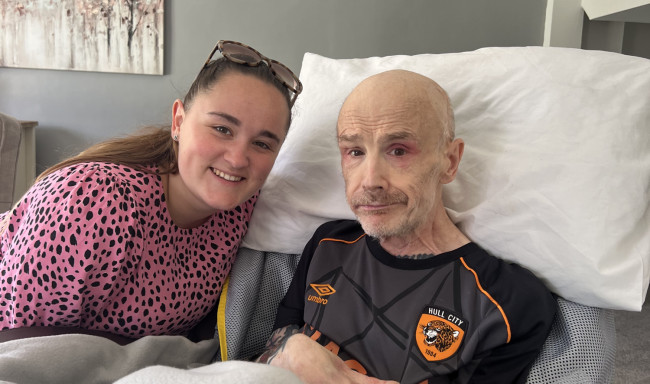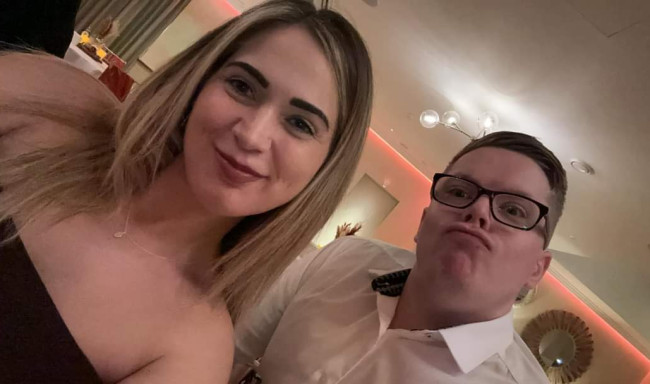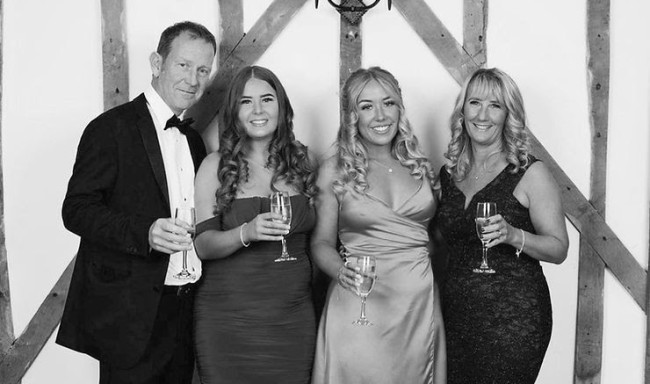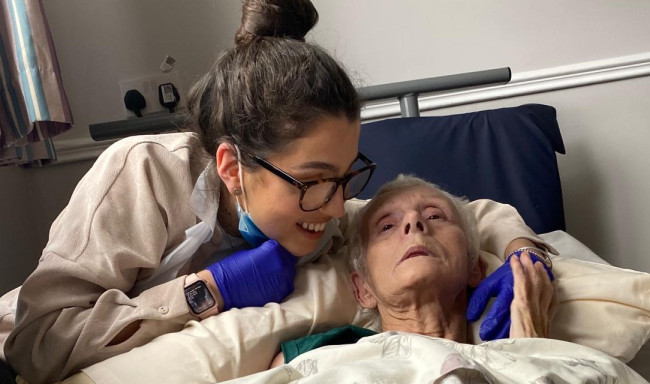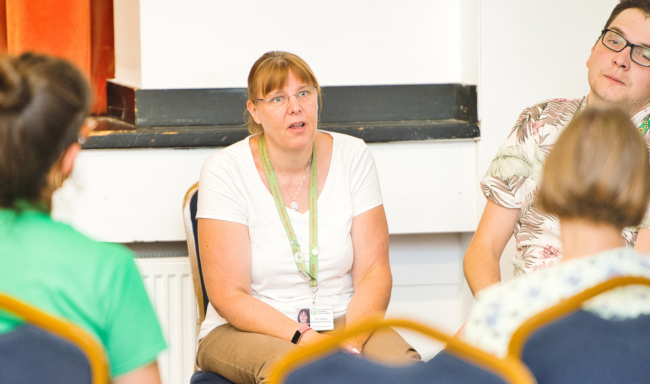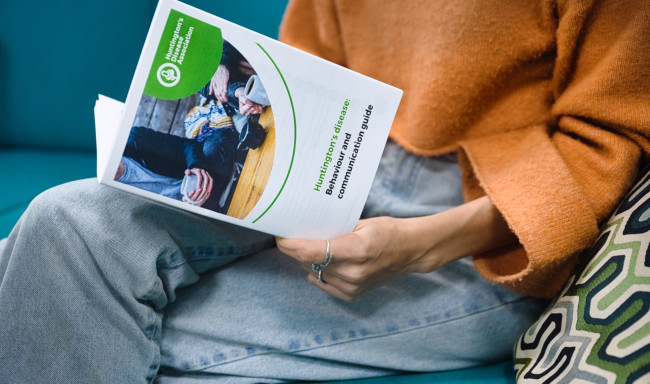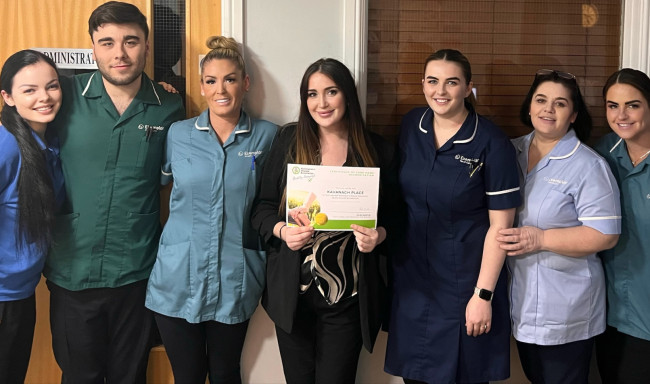A guest blog from a clinical psychologist who comes from a Huntington's family.
They have previously written about living well, and the mental wellbeing impacts of living at risk of Huntington's disease. This time, they are sharing anonymously about choosing whether to disclose Huntington's disease status.
Hello again.
I found myself reflecting recently on gratitude, which I talk about quite often in my therapeutic work. In particular, I was feeling grateful that the Huntington's Disease Association generously allow me to write anonymously here. It allows me to draw on my personal experience and my professional knowledge, while not committing to disclosing my Huntington's disease status publicly (yet). I likewise find myself very grateful for the people who leave comments and send emails – I read and value them all, and one day I hope to respond openly.
So this time, it seems appropriate that I write about sharing one’s Huntington’s status, and how complicated that decision can be. Over the years, I’ve spoken to many people who are worried about disclosing for various reasons. There are lots of us out there, keeping it secret or disclosing only to a trusted few. Others speak out and share their stories widely, often for the good of others. What feels comfortable varies hugely from one person to another, and may also change over time.
So far, I’ve kept my own situation (fairly) quiet outside of my friends and family. But being at risk of Huntington's disease, while also a therapist to people affected by Huntington's disease, generates a real inner conflict. First, because I want to disclose. When I’m working with people affected by Huntington’s, part of me desperately wants to reassure them that I understand how they feel. I know the dread, the hopelessness, the anger at an uncaring universe which has given you and people you love an uninvited and undeserved burden. I know the unsafeness of growing up with an increasingly unpredictable and angry parent. I know the ongoing fear for other family members. Huntington’s is, at the heart of it, just brutally unfair on everyone involved. It’s also isolating – so why wouldn’t I tell people that I understand, and let them know that they aren’t alone? Heck, it would mean I wouldn’t feel so alone with it either. Everyone would win, right?
On top of that, I fiercely want to live openly with the risk of Huntington's and its impact on me. Like so many others, I’ve battled through the shock, anger, fear and grief. I’ve reached a point where I can mostly say that I’m “living well”, despite the shadow of Huntington’s lurking in the background. I would love to join the ranks of the brilliant people who show that being at risk or gene-positive doesn’t define us – that life can still be good, fun, and meaningful. Those people offer the most valuable resource in the Huntington's disease world: hope.
So why not disclose my own status? Well, it’s not quite that simple (when is Huntington's ever simple?). I have three reasons not to disclose, which at the same time somehow never feel quite good enough.
Reason one:
I’ve previously mentioned that my family have asked me not to share my (our) status openly, which is true, and a good reason not to do it. Huntington’s is a family affair, after all, and disclosure from one is a disclosure for all – so we always have to consider others who will be affected by our choices. (Importantly, that’s not the same as saying we automatically can’t do it if others object.) However, I have suspected for a while that if I asked, my family might not mind too much these days. My dad is long past the point where he can disguise his symptoms. My mum follows these blogs with intrigued nosiness (hi, mum!) and we discuss them afterwards. As time goes by, the shadow of the monster is slowly shrinking in the light. So perhaps reason one isn’t much of a reason at all, these days.
Reason two:
In common with many people affected by Huntington’s, I worry about how a disclosure may impact on me in practical ways. This is a fear that I share with many people choosing whether to disclose physical and mental health conditions, including Huntington’s of course. There is a real worry that, for example, employers may use this information to make decisions about hiring, firing and progression at work. They shouldn’t, but it would be unrealistic to say it never happens. So it can easily feel safer not to say anything (until it’s unavoidable, anyway). I think this remains one of the biggest reasons not to disclose among the Huntington's community.
Reason three:
I don’t want people to feel sorry for me. And I hear this echoed in people I work with in therapy: don’t pity me; I might be struggling right now, but I’m not giving up. Sometimes people are wary of seeking therapy, as if it’s an admission that they can’t cope alone – but coming to therapy is an act of courage. It means you’re willing to tip out the painful stuff onto a table and begin to sort through it; to battle through a challenging process to get to a place where things feel somewhat better. And choosing to live openly with Huntington's disease is a similar act of bravery which should attract respect, not pity – but we can’t control how others react, and the idea of others’ reactions can put people off disclosing.
So, the thought of openly talking about my at-risk Huntington's disease status brings a lot of inner conflict. I’ve seen it mirrored in so many people, caught between the wish to be seen and understood, and the worry about consequences. Disclosing our relationship to Huntington's disease is a big decision, and we can’t “unring the bell” once it’s done – so my best advice is to give that decision all the time it needs.
I’m taking my time, too; it’s about ten years since my dad was diagnosed, and while I comfortably disclose my status at a one-to-one level quite freely these days, I can’t see writing one of these blogs with my name attached to it in the immediate future.
That said, I’m not especially subtle and Huntington’s is a small world. In my mind, it’s become a matter of when, not if, I disclose more publicly – and that feels ok. It may also be taken out of my hands if symptoms come along, and while that part is certainly not ok, there are always silver linings to be found in the darkest clouds. And the idea of one day being able to live well openly alongside Huntington's disease, among many inspiring and courageous people who are already doing so, is oddly comforting.
Thank you so much for this insight into living at risk while supporting others with Huntington's disease.

